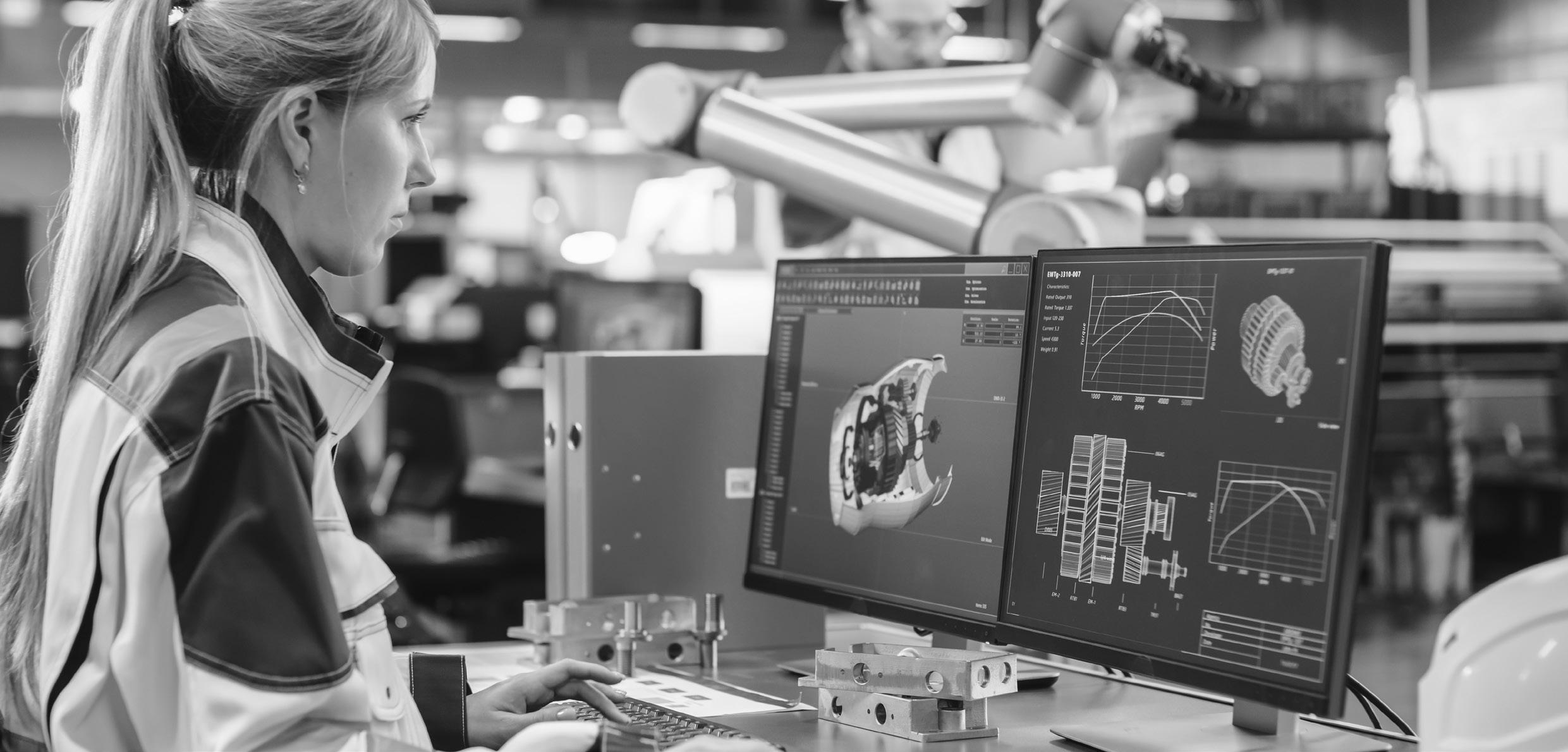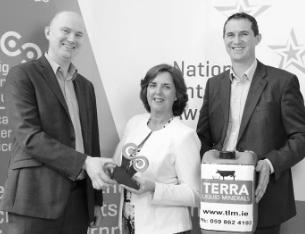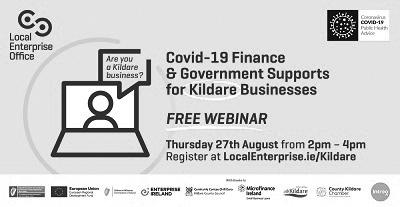
15 minute read
1.1 Overview / 4-year outlook
01
Context - playing to our strengths
Advertisement
1.1 OVERVIEW / 4-YEAR OUTLOOK FOR ENTERPRISE DEVELOPMENT IN THE LEO KILDARE AREA
With continuing rapid growth, Kildare is the fifth-highest populated County in Ireland (current population of 222,504 according to the 2016 census). Our strategic location in the Mid-East Region is a significant advantage. The County’s proximity to Dublin presents opportunities from an economic, social and environmental perspective but, equally, many challenges. Our economy’s growth is highly dependent on entrepreneurs and the SMEs that they create, develop, and grow. The vision of the Kildare Local Enterprise Development Plan is that by 2024, the County and its hinterland will be among the leading entrepreneurial regions in Europe; characterised by a highly conducive environment for entrepreneurship and innovative start-ups.
Kildare has a diverse SME sector which has very significant growth potential but faces unprecedented challenges. SMEs need to be supported as they move their focus from protecting the business to recovery and growth and asking: “how do we learn during this crisis and use that to pivot our business to emerge in a stronger position”.
SME and Micro-Enterprise sector
The SME and the micro-enterprise sector represents approximately 92% of all active business in Kildare. Evidence from the 20082009 recession highlights that small business creation was the key driver in the recovery of the economy: creating the majority of new jobs. As revenues have fallen for a large proportion of small and medium-sized enterprises since the onset of the Covid-19 crisis, exploiting new opportunities & global reach (notably in the green, equine, food and knowledge economies) will be a key focus of our Local Enterprise Development Plan.
Future of work
40% of Kildare’s workforce commute to work outside the County. We are living in an era of a fundamental transformation in the way we work. Exploiting new opportunities for the future work blend of HUB- HOME- HQ will be a key focus of our Local Enterprise Development Plan Kildare. For countless businesses, remote working practices will be part of their new norm, and smart co-working hubs need to be positioned throughout Kildare to provide structured, well connected, professional working environments.
The flagship Mid East Regional Innovation Think Space (MERITS) building which will open in 2021 will be pivotal to the provision of international standard workspaces. Success in bundling space and talent mapping is cited by the IDA as vital for success. . Our Local Enterprise Development Plan will ensure that Kildare’s emerging co-working hubs and enterprise centres need will connect space with skills and talent. The timely publication of “Making Remote Work, the National Remote Work Strategy1” will guide us. The objective of this national strategy is to ensure that remote working is a permanent feature in the Irish workplace in a way that maximises economic, social and environmental benefits.
Knowledge Economy
With the Mid-East Regional Innovation Think Space (MERITS) opening in 2021, Kildare will benefit from a cluster of Irish and international new-technology companies. MERITS will give much-needed infrastructure, mentorship and support to attract high technology investment and industries. The project was approved Enterprise Ireland REDF funding of €1.9m and in 2019 was shortlisted for a National Award - Economic Development Award in the Excellence in Local Government Awards 2019 and LEO Kildare hosted the first Mid East Regional Innovation Conference.
Likewise, the development of the new Irish Equine Health and Welfare Campus with world-leading facilities and expertise for research and diagnostics and Equine Tech Innovation Ireland’s development as Ireland’s first equine technology accelerator are transformational investments in Kildare’s knowledge economy MaynoothWorks (MW)‘s success is the inspiration to add critical mass to the nascent technology start-up culture started by MaynoothWorks in wider County and region. The Local Enterprise Development Plan Kildare seeks to further intensify our growth in knowledge-intensive service sectors. There is growth in demand for both qualifications and tacit knowledge, with scope for rewarding and high-paid work – quite possibly in self-employment.
Unique economic development opportunities - Equine Innovation and Entrepreneurship -
Kildare is synonymous with the equine industry and is often referred to as the “Thoroughbred County”. A recent report by Deloitte Consultants indicated that the industry is worth €1.8 billion nationally. At the heart of the equine industry, there are many opportunities for Kildare to develop and exploit.
Focus on Climate Change
Climate change is one of the greatest challenges of our time. Kildare is the second most affected County in terms of job loss impact as a result of the ending of peat harvesting for power generation in the Midlands region. It is also disadvantaged by a shortage of suitable sites to establish new green Enterprises that could replace the labour-intensive work of peat extraction. Kildare County Council and Kildare Local Enterprise Office are clear that start-ups and small firms’ ability to find suitable premises is a key constraint on the development of the green technologies sector in Kildare. The shortage has implications for economic growth locally and regionally (as many occupiers are as likely to consider other national options). Availability of sites for new start-ups and small businesses in the region is low.
Tourism
Pre Covid-19, our tourism and hospitality sectors were experiencing an upsurge, due in part to county Kildare’s growing reputation as a hospitality and food destination. The emergence of the Athy Food, Drink & Skills Innovation Hub (subject to funding) will be a transformational catalyst for sectoral regeneration. It will revitalise an underutilised building into a powerhouse of food sector learning, innovation and production and will create a legacy impact. By collaborating with best-in-class industry, academic and training partners in the country, Athy Food, Drink & Skills Innovation Hub will be a strategic economic driver for job creation and innovation. Its timing is so important – the decimation of the hospitality industry, the acceleration of innovation by food companies to meet increased food demands, and the early indicators suggesting that the Covid-19 pandemic will result in more food startups, with an increasing number of skilled foodservice professionals losing their jobs and seeking new ways to earn a living.
Agri-Food Sector
The importance of the food and beverage sector in Kildare is evident. With a strong agri-food base, LEO Kildare is about to publish our Kildare Food, Beverage and Hospitality Strategy 2021-2023. This sets out the ambition to harness the strengths of the food landscape in the County and the actions needed to facilitate the growth of the sector in the throes of a Brexit and pandemic environment. The Kildare food landscape is diverse, typified by several very large food manufacturers, a modest number of small to medium producers and a strong cohort of farmers/growers. However, it is recognised that the County is at an earlier stage of evolving its food landscape, has a limited number of small to medium producers and is at an early stage of collaboration between the food stakeholder groups. Many food activities are yet to be “joined-up” under one banner, resulting in County Kildare not yet naturally seen as a destination food county. Through this plan, we will change that.
The opportunity for AgTech in Kildare was accelerated in January 2020 as NOVA UCD were awarded €3 million from REDF for a collaborative project to develop an AgTech Connector Innovation Hub at the UCD Lyons Farm in Kildare. LEO Kildare is a key stakeholder. The goal of the AgTech Connector Innovation Hub is to bring together the AgTech ecosystem in Ireland to accelerate the launch and scaling of AgTech companies. This will provide them with access to on-farm research collaboration opportunities, a location to test and trial their products and services in a real-world environment, along with access to dedicated acceleration programmes and incubation facilities. Through this plan, we will focus on this sector in building its capacity.
“We take influence from key national, regional and local policies, initiatives and objectives”.
The Report of the SME Taskforce: National SME and Entrepreneurship Growth Plan highlights the importance of entrepreneurship to Irish society, not only in economic and employment terms but also in creating a resilient, innovative community that serves the Irish consumer, EU and international markets. It stresses that in the context of a fast-moving external environment, entrepreneurship is very likely to increase in importance as local champions become more important contributors to developing a resilient society.
The Local Enterprise Development Plan Kildare 2021 -2024 also takes influence from the 2019 Global Business Monitor surveyed SMEs from 13 countries and found Irish SMEs were struggling with rising costs and cashflow difficulties2. When Covid 19 struck in March 2020, its impact was immediate and stark. The pandemic has had a pervasive, penetrating, devastating and immediate effect on national economies. The ESRI contend
At the same time, Irish SMEs remain most exposed to Brexit’s twists and turns. Brexit will make it more difficult for start-ups to start exporting to what has always been our training ground and testbed for new ventures.
As highlighted, Irish SMEs face unique challenges to their operating environment posed by Covid-19. A dramatic and sudden loss of demand and revenue has affected their ability to function and caused severe liquidity shortages. Measures to contain the disease have also disrupted the availability of staff and supply chains. These various impacts are affecting both larger and smaller firms. However, the effect on SMEs is especially severe; mainly because of higher levels of vulnerability and lower resilience related to their size.
While this Local Enterprise Development Plan Kildare places a strong focus on supporting existing SMEs with their resilience and growth plans, it will also strive to create an environment that promotes new and indigenous entrepreneurial SMEs. The Overarching Vision for Entrepreneurship as set out in the Report of the SME Taskforce: National SME and Entrepreneurship Growth Plan gives insight into our ambition:
“Overall, the objective for entrepreneurship is that Ireland will be characterised by a strong entrepreneurial culture, recognised for the innovative quality of its entrepreneurs, and acknowledged by entrepreneurs as a world-class environment in which to start and grow a business. The challenge is to harness to the full the entrepreneurial potential of all those living in Ireland, whether they are establishing a social or commercial Enterprise”.


Terra Liquid Minerals was established by Athy brothers Tom and Padraig Hennessy. They have developed an intelligent mineral dosing system and specialise in the accurate delivery of its custom-made formulation to livestock. In 2018 the business was named Overall Winner of the National Enterprise Awards.
Impact of Brexit and the Covid crisis on businesses, LEO clients, and the local economy of the LEO Kildare
Brexit is a once in a generation challenge for SMEs with the widespread concurrence that Irish SMEs need to make significant productivity gains to survive the fallout from Brexit. Kildare is a proven investment location with the second highest FDI rate nationally, it is ideally placed to appeal to international organisations seeking an English-speaking EU base. Relocations from the UK and Northern Ireland are a compelling opportunity. According to the Chartered Institute of Procurement & Supply UK, nearly one in seven EU companies with UK suppliers has moved part or all of their operations out of Britain. As the opportunities and challenges of Brexit begin to crystallise, Ireland has become the location of choice for companies looking to relocate their European hubs from the UK. Ireland’s close ties to, and shared language with, the UK, as well as its comparable legal system and culture, give us a significant edge when it comes to attracting UK based multinationals. Across the UK, companies are carefully considering how to restructure their operations to cope with Brexit disruption. Sectors for which common regulation across the EU is vital are now looking to Ireland as their new base in the EU. Kildare needs to be ready to capitalise on this opportunity.
The global Coronavirus pandemic (Covid-19) has significantly impacted Kildare, our business ecosystem, and the people at the heart of our communities. It has highlighted vulnerabilities in our SMEs regarding lack of resources, limited technical capacity and capability and supply chain vulnerabilities. It has also highlighted that SMEs are famously agile and quick to adapt. It is accepted that recession usually brings about an acceleration in business model change. On the other hand, pandemics enable entirely new categories of businesses and disruption, especially science and technology. Both pandemics and recessions are accelerants to innovation and across our priority sectors, Kildare 2025 will nurture and facilitate recovery and innovative growth.
The Covid-19 pandemic may have the unintended effect of pushing us forward with the future of work. Remote working has the potential to create an array of economic and environmental opportunities in Kildare. More than one in four private-sector workers in Ireland can work remotely, and the development of co-working hubs with high-speed broadband has the potential to open up several economic and environmental opportunities and stimulate inclusive recovery in Kildare. Influence has been taken from the “Regional Co-Working Analysis3“ published by the three Regional Assemblies of Ireland and also the publication of “Making Remote Work – National Remote Work Strategy” which seeks to facilitate increased remote work adoption in a way that reaps the many benefits and mitigates negative side-effects of remote working through removing barriers, developing infrastructure, providing guidance, raising awareness and leading by example.

3 Eastern & Midland Regional Assembly More than 1 in 4 private sector workers are capable of operating remotely, analysis from the 3 Regional Assemblies of Ireland shows - Eastern & Midland Regional Assembly (emra.ie)
Strengths
Varied industrial and economic Enterprise base. Strong, established Foreign Direct Investment base for employment. Solid corporate base, e.g. Kerry Foods, Intel, Hewlett Packard, Pfizer, Green Isle. Growing Retail sector - Whitewater and Kildare Village. Overall education base. Good base of micro and SMEs. Established Tech, agricultural, horticultural and equestrian/bloodstock sectors nationally. Maynooth University - the fastest-growing University in Ireland /well-educated population. Location of Kildare within the Greater Dublin Area, with close proximity to Dublin. Major transportation corridors. Motorway and rail infrastructure of national importance in place. Youngest County in Ireland. Rapidly growing population. High labour force participation rate. Infrastructure unable to respond to rapidly increasing population/demand. Substantial gaps in services. Lack of business cluster networks/activities. No food incubation units. High proportion of workers commuting outside of the County for work, education and training. Skills shortages relative to employment opportunities. Increase in unemployment amongst more disadvantaged groups. Limited training opportunities and facilities. Restructuring challenges in agriculture. Relatively high regional dependence on construction-based employment. Lack of public transport options to service areas within the County. Poor transport linkages/cross connections. Poor public transport in rural areas. Under performing tourism sector. Capacity to meet the Ireland Ancient East brand promise.
Weaknesses
Opportunities
Young, educated population base of the County. A strong agri-food industry. Good potential for agtech, equine tech, green tech, knowledge economy Economic recovery. Employment options growing – Kerry Foods and multiplier effect. Expanding educational opportunities, Maynooth University and Kildare Wicklow ETB. Rapidly growing population - potential for project promoters and innovative projects. Potential for diverse tourism offerings. Potential of the natural environment and leisure amenities Fáilte Ireland’s Ancient East marketing initiative
Threats
Capacity to serve the needs of the significant and growing young population. Economic and social imbalances within the County. Growth has not been matched by essential services. Infrastructure constraints and increasing pressure on existing infrastructure. Lack of Next Generation Access fibre broadband across all areas of the County. Inability to match employer skill requirements with the skills available in the County. The decline of rural towns and villages in Kildare. The development of large scale ‘out-of-town’ retail developments. The country’s major motorways which pass through the county/facilitate non-stop over traffic.
LOCAL AUTHORITY BUSINESS SUPPORTS
Kildare County Council takes a pro-active role in supporting the development of businesses within the county. As well as playing a key role in providing the necessary infrastructure that enables business and economic activity to happen in the county, Kildare County Council has a number of specific areas of engagement with and support to the businesses in the county:
• Kildare County Council increased investment in entrepreneurship and innovation ecosystems to drive economic growth, including a county-wide Innovation Hub Strategy to date it has invested /committed to a sum of €6 million to 3 strategic Hubs. MERITS Nass, Equine Innovation Hub
Kildare & Food, Drinks & Innovation Hub in Athy • Through its Finance Section it works with local businesses to find solutions to challenges which they have in relation to rates and service charges and in particular has been instrumental in making payments under the Governments Commercial Rates Waiver. • Kildare County Council has made available a strategic investment fund of some €350,000 per annum aimed at assisting local projects that add to the economic, social and cultural development of local communities throughout the county inclusive of the Shop Front Grant Scheme, • It manages the funds and structures under which the LEADER Local Action Group now operates, and which will provide significant funding to rural enterprises, community projects and environmental projects over the next seven years. • It owns and manages a range of land and building assets that have the potential to contribute significantly to the economic development of the county and specifically can provide suitable lands for enterprise development. • Through the planning process – both the preparation and delivery of the County Development Plan and through the planning control process, the Council plays a very significant role in setting policies around land use planning that affects locational decisions and in delivering a timely service that facilitates business start-ups and expansions. • Kildare County Council engages in the development of tourism products in particular signature attractions such as Curragh Plains and in the marketing of the County as a destination. It commits significant financial resources to this sector on an annual basis.
• Through its Economic Development Unit Research and Policy Unit, it carries out statistical and market analysis and policy reviews on issues and challenges affecting the County. This analysis and research assists in the planning and implementation of strategic initiatives, assists in enterprise development plans and enables investment decisions








